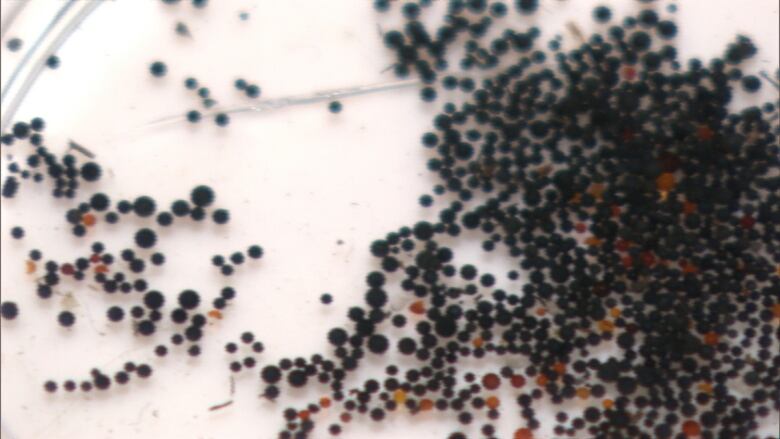Great Lakes filling with microplastics, researcher says
'These are so small we cannot even see them'

The Great Lakes are filled with the world's largest supply of freshwater, but an upcoming workshop in Windsor, Ont. is trying to highlight the fact the lakes are also filled with plastic.
By one estimate, there are at least half-a-million pieces of plastic per square kilometre in areas ofthe Great Lakes. That translates to 2,500 pieces of plastic per football field, according to Hans Durr, a professor with the Ecohydrology Research Group at the University of Waterloo.
- Microplastics at 'alarming levels' in Canadian lakes and rivers
- Plastic microbeads: small bits with a big impact
"Microplastics are a serious threat in the Great Lakes, just as they are in the oceans of the world," Durr, told CBC Radio's Tony Doucette.
Microplastics aresmall pieces of broken down plastic less than five millimetres in diameter.Included in that category arethe small microbeads found in products like facial scrubs,Durr explained.
"The problem is these are so small we cannot even see them and that organisms such as mussels, fish or birds eat these particles," he said.
The research is still unclear about the exact health risks associated with microplastics, but plastics do contain toxic material.
"The danger is that the plastics can enter the food chain, so the plastics can possibly go to humans as well," he said. "If the plastics get into [fish] tissue [and], we consume them, then we definitely have an issue down the line."
Durr said the technology to filter these plastics from the water is still expensive and infeasible. The best solution is for humans to change their behaviour, like not using plastic bags.
"We can certainly do something," he said.
Durr will be presenting his research at a public workshop on microplastics in the Great Lakes at the University of Windsor.
To hear Durr's full interview with Doucette, click on the audio player below.













_(720p).jpg)


 OFFICIAL HD MUSIC VIDEO.jpg)
.jpg)



























































































